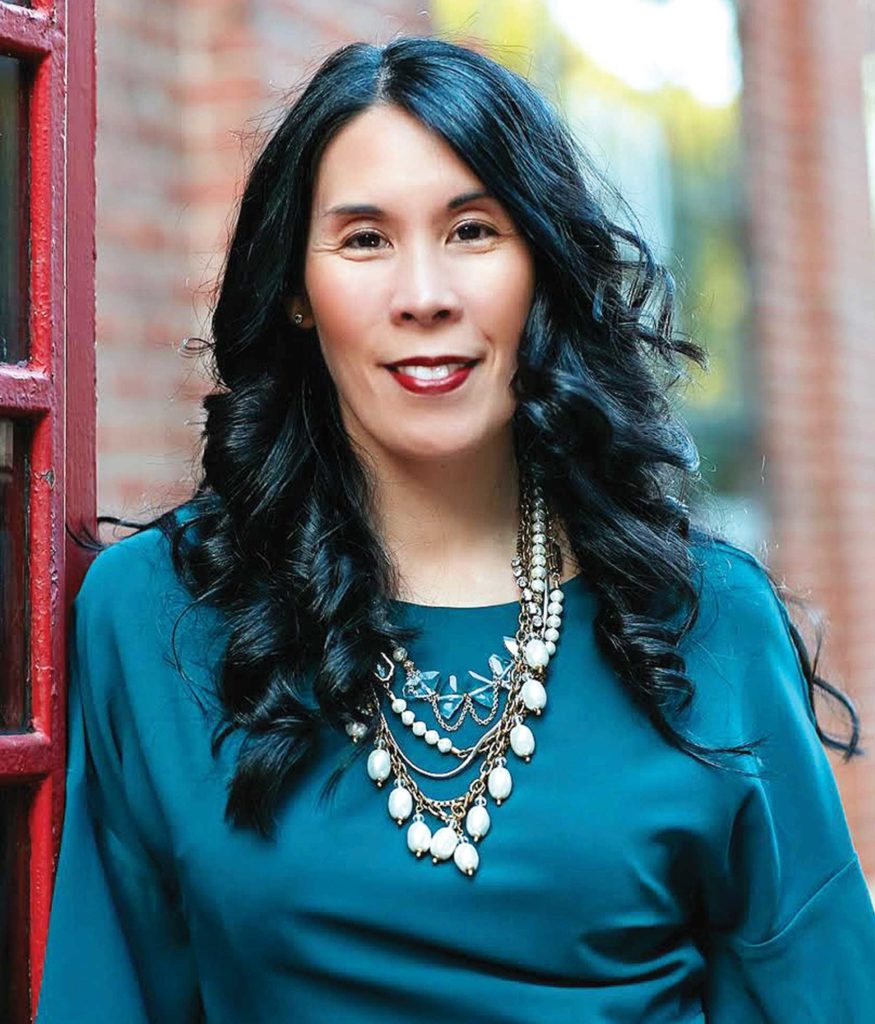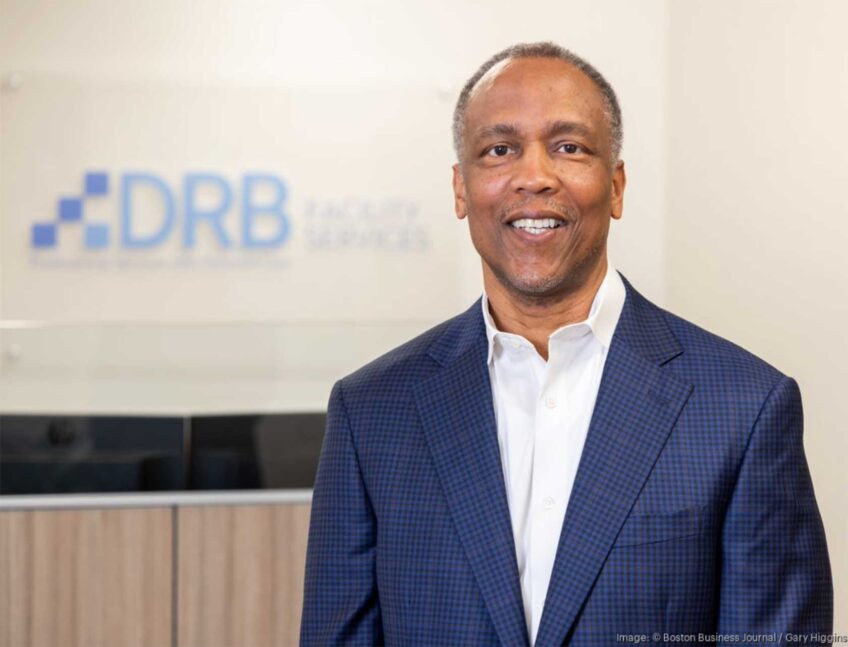
The Boston Impact Initiative (BII), a nonprofit impact investment group focused on businesses and entrepreneurship in Massachusetts communities of color, recently announced the launch of a new $20 million investment fund aimed at Black and brown entrepreneurs and local and regional community-controlled real estate ventures. This is the second such fund to be offered by BII, which was co-founded by Boston-area entrepreneur, author and social activist Deborah Frieze. The group’s first fund was launched in 2013, and the new fund will roughly double those investments. The Banner spoke with BII CEO Betty Francisco about the new effort.
Let’s start with the big picture: What is the mission of BII, and what makes it different from other investment funds?
The founders of BII are Deborah Frieze and her father, Michael Frieze. They started a pilot fund back in 2013 in order to test this idea of, can you invest integrated capital via place-based investing in Greater Boston, while focused on enterprises owned by people of color, or that were creating jobs in communities of color — and using this blended capital approach to create capital access for traditionally under-served entrepreneurs that typically don’t get access to traditional capital.
So back in that time, this pilot fund invested about $3 million into 30 or so enterprises, both for-profit and nonprofit, and was able to show that this kind of investing can be catalytic. It can provide that early capital for businesses to start up and grow and become employer firms in in our places.
Proving that this kind of investing can work, in 2018 BII launched the first fund, and it was created as a nonprofit charitable loan fund, specifically to allow for accredited and non-accredited investors to be able to participate.
Can you explain the difference between “accredited” and “non-accredited” investors and why that distinction matters?
Accredited investors are defined by securities laws, and it’s people that are relatively well-off from an income perspective, or people that have $1 million or more in net worth.
So “non-accredited,” folks, those who don’t meet that definition, are often excluded from private investment activities or opportunities that both can be ways to invest and save and generate some return, but also that can have an impact.
Part of the thesis of our fund is shifting and flipping on their head these concepts of who can benefit, who should have the right to invest and create wealth.
A lot of wealthier folks can invest in things like venture funds or private equity funds, and make a really, really good return, while non-accredited investors never get to participate. They don’t even know that many of these opportunities exist. It’s just not talked about, especially in our communities of color.
Meanwhile, there is a need for what we call “patient” equity capital for certain businesses.
The reality is, we have many good moderate-growth businesses in our communities that are creating good jobs. They’re paying livable wages. They’re really anchors in their area, but they’re not going to have that rocket-ship kind of growth, and they need equity capital. In Massachusetts, entrepreneurs of color have a capital demand of almost half a billion dollars a year that’s not being met by our ecosystem. And we see [that] a lot of entrepreneurs that need capital are not able to source it from a bank or traditional source or friends and family. They just need a different kind of investor.
BII describes its mission as “integrated” and “non-extractive” investing. What do those terms mean to BII, your investors, and the businesses you invest in?
Integrated capital for us means a couple of things. In our fund structure, it’s blending accredited, non-accredited and institutional philanthropic capital, so these groups can all participate in driving racial and economic justice.
But also, it’s the way we invest that money, using all the tools in the toolbox, meaning equity, debt and the different kinds of transaction structures that those lend themselves to.
So if a business needs a term loan, maybe they need a line of credit — banks, for example, lend, but that may not be a good fit for some of the businesses we work with. Many times, in order to access that kind of capital, you have to have a good credit score, you have to provide guarantees — things which, because of structural and historic inequities and barriers, perpetuate the lack of access.
A lot of times, the only option that these businesses feel they have is debt capital. And that is not often the best solution for them. But many Black and brown businesses, they get those products pushed on them. So it may not only be the worst type of capital they could take, but they may not even be able to access it effectively. And if they do, it’s a disservice, meaning has a really high interest rate. It’s extractive.
Our approach is rooted both in seeking less extraction and trying to shift the way that investments are made so that we can challenge some of those systemic barriers. The point is that we’re able to blend right the different kinds of capital in order to best fit the needs of the business.
So rather than taking a business that has a bit of a higher risk and making a loan at 10% interest, where it’s very difficult for that business to bear it, we instead say, “How can we provide an investment that will allow that business to have the runway and breadth to grow?”
BII is now launching its second such fund, more than doubling that first round of investment. What are some of the lessons you took from the first fund, and how is this second fund different?
During COVID, we saw a shift in how community investors are approaching investments in communities of color. We saw a lot of grant and debt capital come into the market to support small businesses, especially businesses that are minority-owned. And so there’s more availability of that capital — but a reluctance by the entrepreneurs to take on more debt.
[The second fund] doubles down on our mission to drive economic and racial justice through business ownership. This second fund is only going to invest in black, Latino, Asian entrepreneurs. And it will be sector-agnostic, meaning that it’s not focused on one industry.
The themes of this fund are businesses that are driving our climate resilience, our green transition, businesses that are full power, meaning worker power, so cooperatively owned or employee-owned businesses, unionized businesses, and then businesses that are creating financial inclusion — businesses that are creating some kind of systemic change.
And then this second fund will also be doing a new type of asset class investment with real estate. We see so much displacement happening, both in residential and on the commercial side. And we know that one of the best ways to build wealth and assets is through owning buildings and land, owning property. So about 35% of this fund will be invested in community-owned real estate.
In addition to the businesses BII invested in with the first fund, you’ve made six investments already from this second fund. What are some of the outcomes so far?
One example: There’s a business up in Lawrence, Valley Foam Insulation, which is Latino-owned and provides residential insulation and weatherization services in homes predominantly in Latino areas. We made a first investment in them so that they could get a second truck to be able to service more homes. And with our second fund, we made another investment in them to be able to continue growing their fleet and serve even more homes in predominantly Latino, Spanish-speaking communities in Massachusetts. And, they’re helping to accelerate the green transition in that area.
On the real estate side, we recently made an investment in the East Boston Neighborhood Trust, which was an acquisition by the East Boston CDC of 36 buildings, representing 114 units in Boston. So these were acquired from a developer with the goal of now preserving permanent affordability of these units and transitioning them back to families in East Boston.
Another example, in the spirit of climate resilience, is a very early company called Chop Value. An entrepreneur started this business that takes recycled chopsticks that would go into a landfill, and they create beautiful furniture and home goods out of these recycled chopsticks. It’s really beautiful stuff — because they’re making these wood products out of something that would be thrown away.






